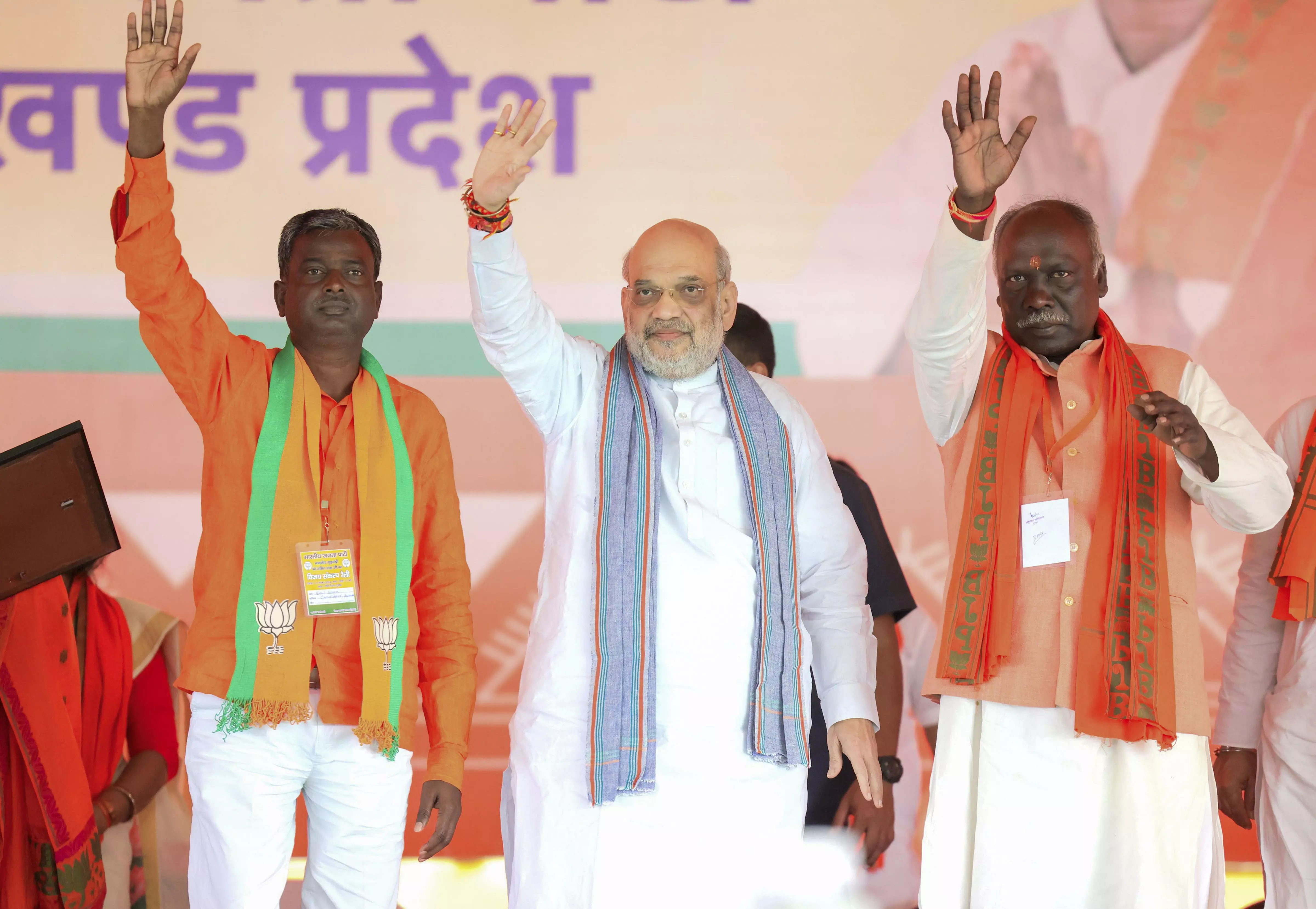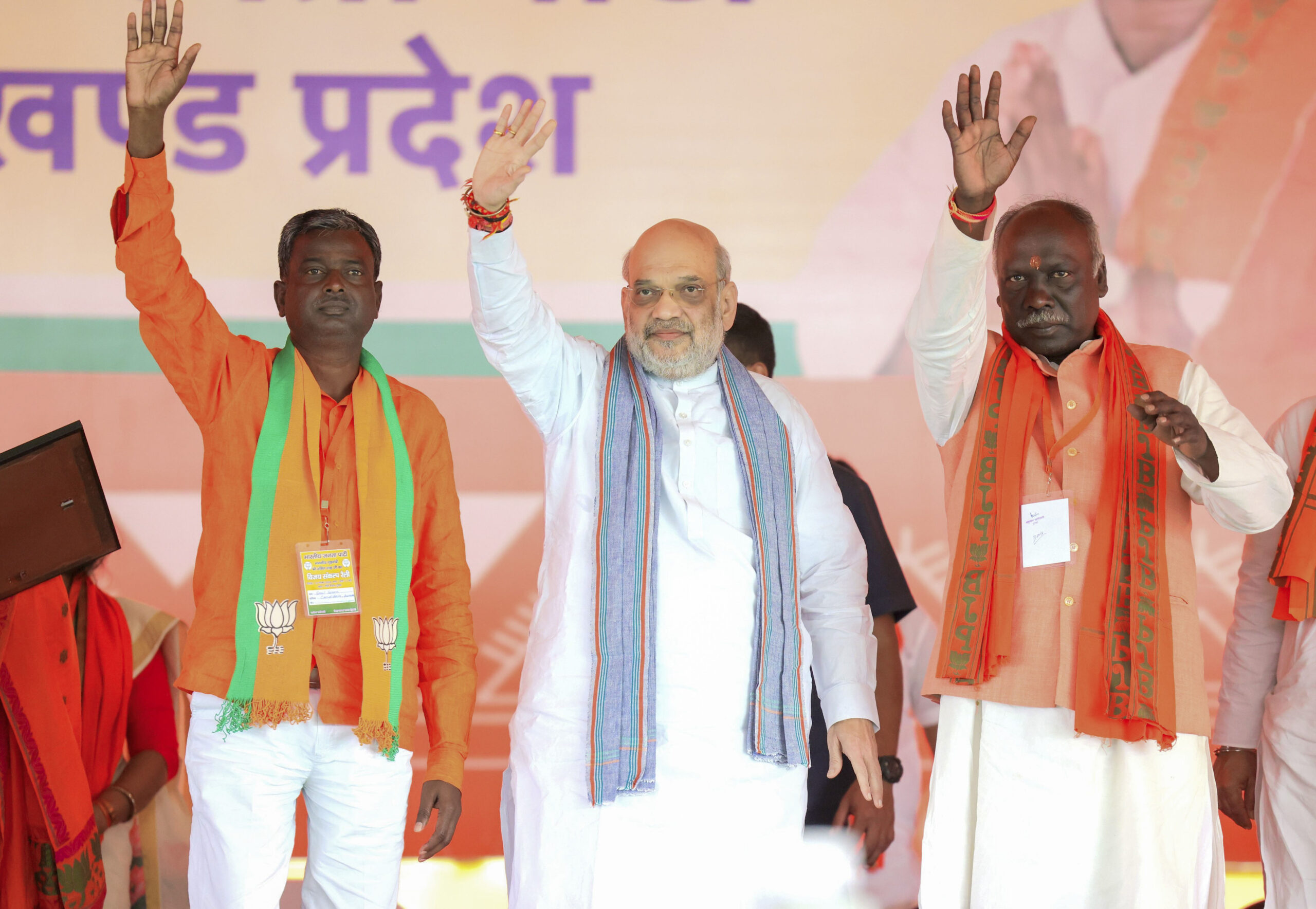
Following the rigmarole of politicians pitching for votes has never been as befuddling as it is in this round of state Assembly elections in Maharashtra and Jharkhand. This is an election where the regional idiosyncrasies and ethos are posing a major challenge to the BJP’s beliefs and Hindutva ideology, with its surreal notion of a homogenous Hindu majority that pays obeisance in a standardised format, ignoring the particular practices of an estimated 33 crore gods and deities according to Bengali folklore.
The fight is whether “Batange ya Katange” (divided we will be decimated), Yogi Adityanath’s contribution to the continuous proliferation of vocabularies of violence, and Narendra Modi’s spin “Ek hain to safe hain”, which means united we stand (and) divided we fall, to counter the tactics of “Vote Jihad”, correctly reflects the ethos of Maharashtra. Had the Opposition said these rabble-rousing chants were “not relevant” or said, “Frankly, my politics is different. I won’t support it just because I belong to the same party. My belief is that we should work on development alone. A leader’s job is to make every living person on this land their own. Therefore, we need not bring any such topic to Maharashtra”, the BJP would have been unfazed. Its pracharaks, including Devendra Fadnavis of blighted chief ministerial ambitions, would not have rushed to counter the narrative.
The embarrassing thing is that these direct attacks on toxic, communally divisive rhetoric originates within the BJP. Pankaja Munde, a daughter with BJP lineage, and Ashok Chavan, a defector from the Congress, have said it. The BJP’s difficulties are further complicated by the direct and indirect criticism of the “Batange-Katange” rhetoric voiced by Ajit Pawar and chief minister Eknath Shinde, the icons of the other side who split the Nationalist Congress Party and the Shiv Sena to join up with the BJP to form the Mahayuti. Since neither Mr Pawar nor Mr Shinde are naïve politicians, their reason for distancing themselves from the BJP’s venomous verbal strikes may be a protective device, because each wants a future, rooted in Maharashtra and its politics.
Had Mr Modi studied Swami Vivekananda’s guru Sri Ramakrishna’s teachings he would have discovered that the Ramakrishna Math order is committed to an entirely different ideology — “Joto mot, toto poth” — which roughly translated means that there are as many paths to spiritualism as there are opinions.
In other words, any Hindu is free to seek his own road to salvation.
The obvious disrespect to the political culture and ethos of Maharashtra implicit in the last-ditch effort by Mr Fadnavis and the RSS in countering the criticism of Ms Munde, Mr Shinde, Mr Chavan and Ajit Pawar reveals the BJP hasn’t learnt to deal with diversity even after losing elections in West Bengal, Tamil Nadu, Karnataka and Kerala. Its obsession with one size-one formula doesn’t fit all states. Successful in deploying a vocabulary that worked to its advantage in the Hindi heartland and in Assam where bhoomi putra politics versus migrants, illegal or otherwise, predates the BJP’s rise as a dominant national party, its consistent failures elsewhere should have been a lesson.
In Jharkhand, the BJP is tone deaf to the complex tribal identity issue. It has promised to bring in the Uniform Civil Code, by offering exceptions for tribal practices and laws. It has consistently campaigned against reservation benefits going to Christians among the tribals. The inability to understand that the tribal identity is not erased because a person has converted to Christianity in the same way as tribals do not change their identity by following mainstream Hindu practices is beyond their limited imagination.
By adopting a nativist agenda and presenting themselves as the saviours of tribals, the BJP seems to have conveniently forgotten that the unanimous resolution passed by the Jharkhand Assembly to recognise Sarna and its Code as a separate religion has been blocked by the Centre, which has failed to accept the demand. The promise by Amit Shah to eject all infiltrators and Rohingyas and protect women and land rights from Muslims who seem to have been portrayed as an invasive species is a peculiar gambit.
The “Ek hain to safe hain” message backed by the RSS’ call in Jharkhand “Sajag Raho” (Be Vigilant, Be Alert) to mobilise Hindus and tribals has fallen flat, by all accounts. In the expectation that tribal voters can be detached from their loyalty to the Jharkhand Mukti Morcha by attackling the Soren family, including Shibu Soren, Hemant Soren, his wife and son, for facilitating the expanding settlements of illegal Muslim migrants from Bangladesh and Rohinghyas Muslims from Myanmar, the RSS and BJP used communal identity and the fear of being outnumbered to present themselves as nativists, the only bulwark against further marginalisation of tribals.
It is hard to imagine that the politically astute Mr Modi, has not figured out that Jharkhand’s tribals are seriously suspicious of the Centre’s policies on tribal land and forest rights and have organised to oppose the alienation of rights. He and his party and the RSS and its offshoots have forgotten that the tribals, especially converts, hold a grudge because Father Stan Swamy lived and worked in Ranchi.
The BJP’s increasing anxiety can be measured by the shrillness of its marketing campaigns in successive Assembly elections of cash handouts to women, unemployed youth, farmers, free electricity and foodgrains to woo voters. The much reviled “revdi” (free handouts) culture as a cash-for-votes mechanism is now the BJP’s own tactics. Since all its slightly different iterations of Mamata Banerjee’s original scheme “Lakshmir Bhandar”, rolled out in 2021, are sweeteners for voters, it’s an admission that the “Modi magic” has failed; Sabka Saath hasn’t produced Sabka Vikas and Viksit Bharat is a farfetched promise since the poor need cash handouts and free foodgrains.
The party and Mr Modi cannot cover up what the voter already knows through lived experiences. In Maharashtra and Jharkhand, voters were beneficiaries of the policy of liberalisation and the economic boom that followed. The current state of the economy, of joblessness, unemployment, inflation and sluggish and fitful and uneven growth, is something voters understand.
It needs incentives to sell itself. The core message is obvious; regardless of how much confidence Mr Modi and the BJP try to exude, the appeal is minimalist; there is no alternative to the BJP, unsatisfactory as it is. The increasingly bizarre content of the BJP’s campaign messages replete with references to the Red Book, Urban Naxals, anti-Hindus and anti-Sanatans, Vote Jihad and the mystifying resurrection of Razakars to trash the Congress and its president Mallikarjun Kharge, are pointers that even Mr Modi’s mystique needs props.
